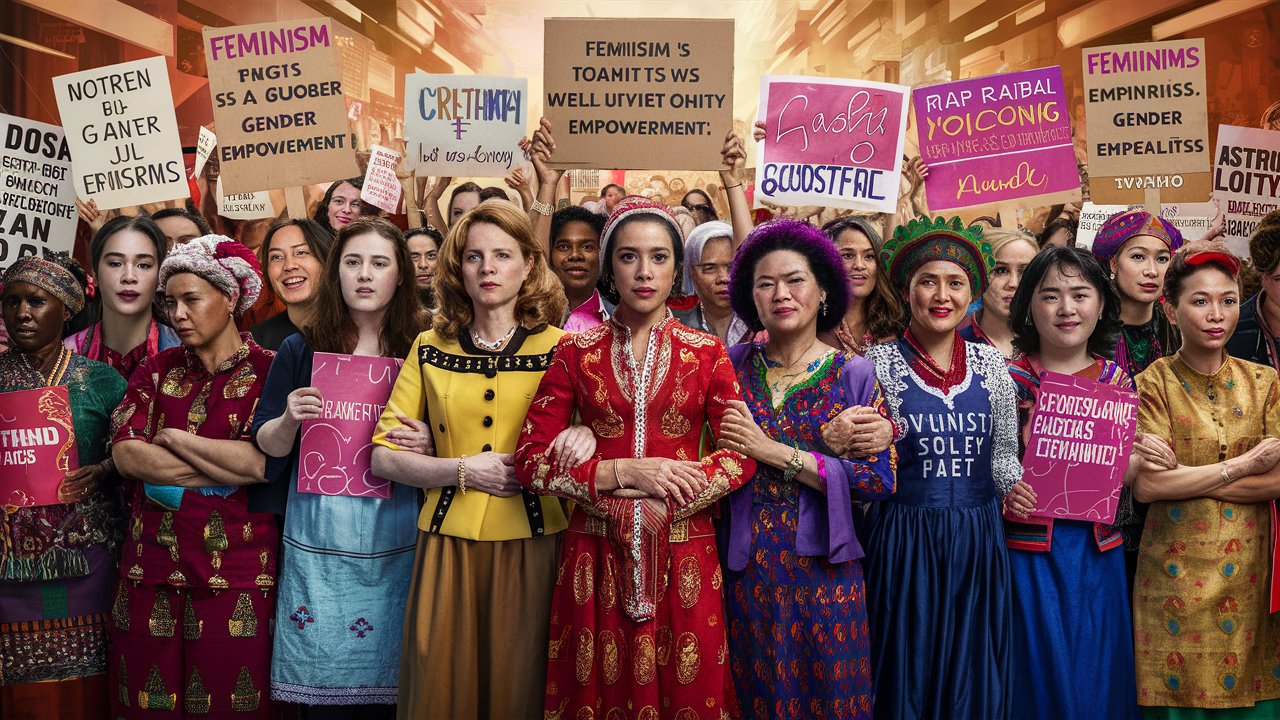5. Feminism is not really a third world issue. 2017

Third issue Feminism is not really a third world issue. 2017
Introduction
Feminism is a movement that aims to achieve gender equality and challenge patriarchal power structures. While feminism has traditionally been associated with Western countries, there is growing recognition that it is a global movement that is relevant to women around the world. However, there are those who argue that feminism is not really a third world issue. In this essay, I will explore this argument in depth, examining the ways in which feminism is relevant to women in the developing world.
Feminism and Global Inequality
One of the key reasons why feminism is relevant to the developing world is because it is closely tied to global inequalities. Women in the developing world are often among the most vulnerable and marginalized groups in society, facing high levels of poverty, limited access to education and healthcare, and widespread gender-based violence. Feminism provides a framework for understanding and addressing these inequalities, by highlighting the ways in which gender intersects with other forms of oppression, such as race, class, and sexuality.
Feminism and Development
Feminism is also relevant to the developing world because it is closely tied to the broader development agenda. Gender equality is recognized as a critical component of sustainable development, and the United Nations Sustainable Development Goals include a specific target on achieving gender equality and empowering women and girls. Feminist perspectives provide important insights into the ways in which development interventions can be more gender-responsive, by taking into account the diverse needs and experiences of women in the developing world.
Feminism and Human Rights
Feminism is also relevant to the developing world because it is closely tied to human rights. Women’s rights are human rights, and the struggle for gender equality is part of a broader struggle for social justice and human dignity. Feminism provides a framework for challenging the systems of power and oppression that deny women in the developing world their basic human rights, such as the right to education, the right to work, and the right to be free from violence and discrimination.
Intersectionality and Third World Feminism
One of the key criticisms of Western feminism is that it tends to be dominated by white, middle-class women, who often overlook the experiences and struggles of women from diverse backgrounds. This has led to the emergence of what is sometimes referred to as “third world feminism”, which seeks to address the unique challenges and perspectives of women in the developing world. Third world feminism recognizes the importance of intersectionality, or the ways in which different forms of oppression intersect and compound to create unique experiences of discrimination and marginalization.
Conclusion
In conclusion, feminism is a global movement that is relevant to women in the developing world. Feminism provides a framework for understanding and addressing the complex and interconnected forms of oppression that women in the developing world face. Feminist perspectives are essential for achieving sustainable development, promoting human rights, and challenging systems of power and privilege. While there are important critiques of Western feminism and the need for more intersectional approaches, it is clear that feminism is a critical tool for achieving gender equality and social justice for all women around the world.
visit: https://scholarshipresort.com/